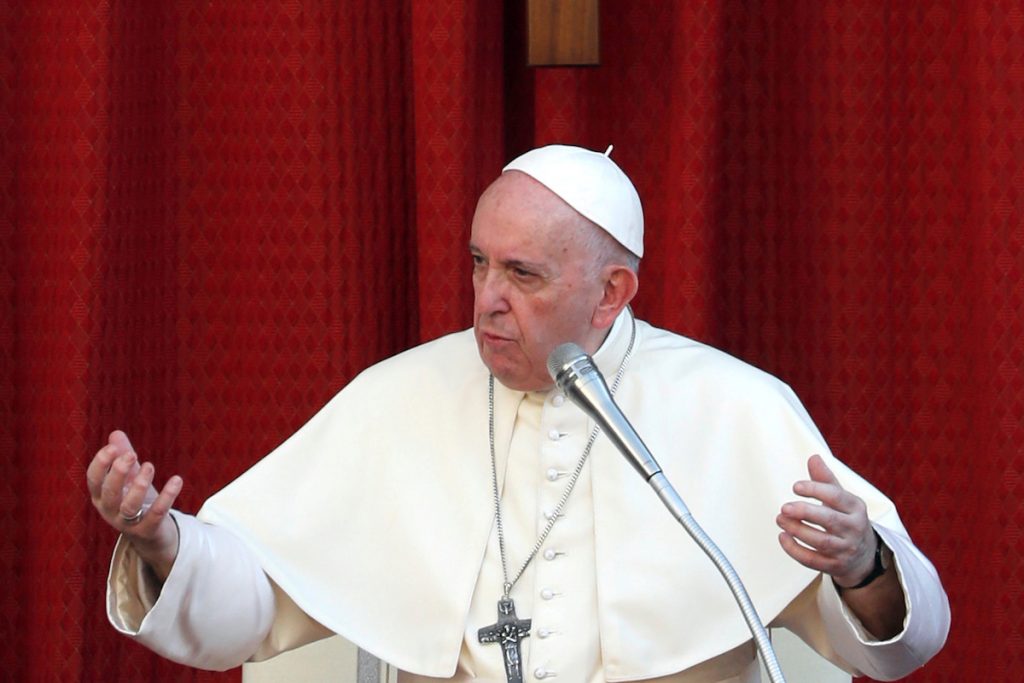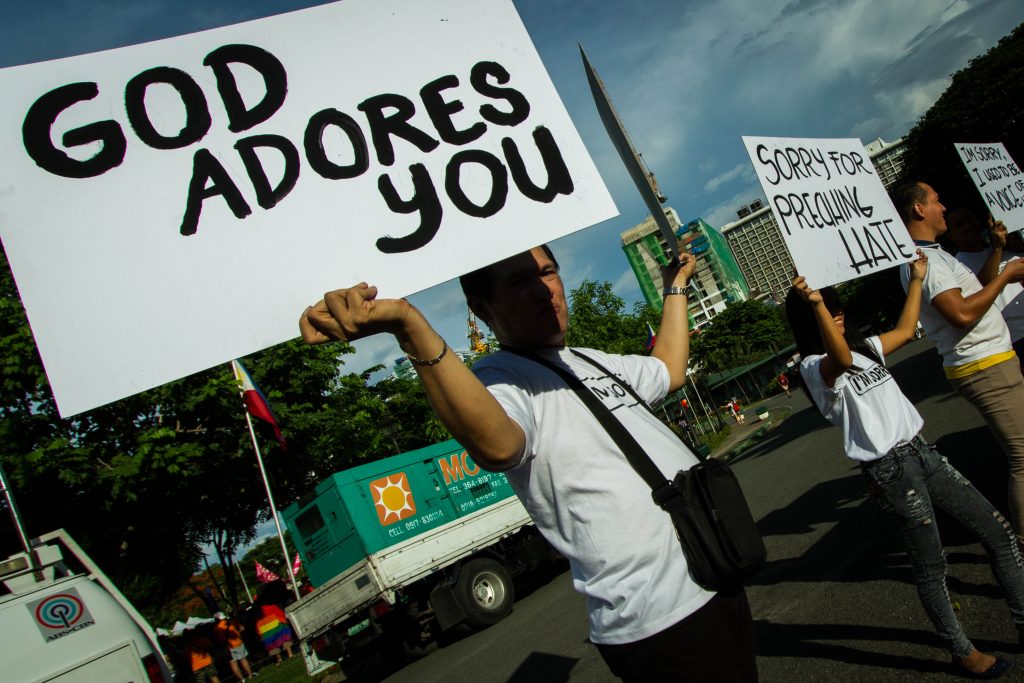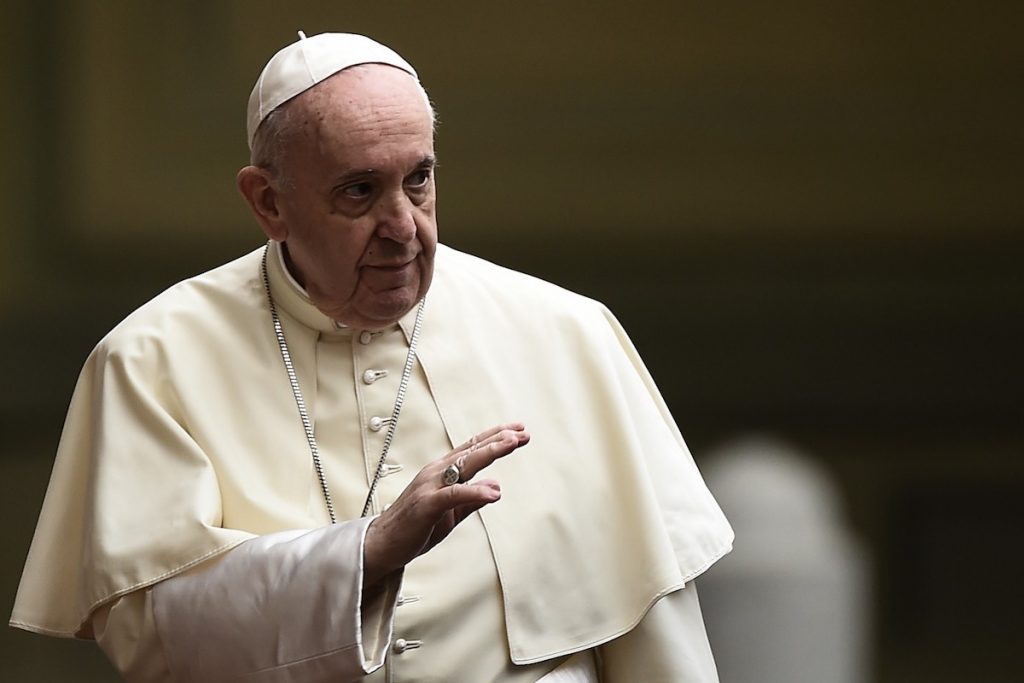
The Vatican has clarified the recent comment of Pope Francis, which he made for a documentary film titled “Francesco,” on the issue of “civil union” to cover gay people.
A social media post by Archbishop Franco Coppolo, apostolic nuncio to Mexico, said the Vatican’s Secretary of State has asked papal representatives to share the clarifications.
“Some helpful points are offered, with the desire to present an adequate understanding of the Holy Father’s words,” read Archbishop Coppolo’s post on Facebook on October 30.
He said the Vatican clarification explained that the pope’s comments do not pertain to Catholic doctrine regarding the nature of marriage as a union between one man and one woman but to provisions of civil law.
Archbishop Coppolo said in a media interview that what he posted on his social media account was provided by the Vatican’s Secretariat of State to apostolic nunciatures.
The post noted that in an earlier interview with Pope Francis, the pontiff answered two different questions at two different times that, in the documentary “Francesco.” were edited and published as a single answer “without proper contextualization, which has led to confusion.”
“The Holy Father had first made a pastoral reference about the need for a son or daughter with homosexual guidance to never be discriminated against within the family,” read Archbishop Coppolo’s post.
“They refer to the words: ‘Gay people have the right to be in family; they are children of God, they are entitled to a family. You can’t kick anyone out of family or make life impossible for that reason,'” it added.

Respect for dignity of people
The post was followed by a paragraph citing the encyclical “Amoris Laetitia” that read: “With sinodal parents, I have taken into consideration the situation of families living the experience of having in their sinus to people with gay tendencies, an experience nothing easy for parents or their children.”
“Therefore, we wish first and foremost to reiterate that everyone, regardless of their sexual tendency, should be respected in their dignity and received with respect, seeking to avoid ‘any sign of unjust discrimination,’ and particularly any form of aggression and violence.
“As far as families are concerned, it is for their part to ensure respectful accompaniment, so that those who manifest a gay trend can count on the help they need to fully understand and realize the will of God in their life,” read the statement.
It then added that a successive question from the interview in the documentary was “inherent in a local law ten years ago in Argentina” about “equal same-sex couples marriages”′ and to the opposition of the then archbishop of Buenos Aires about it.
“Pope Francis has affirmed that ‘it is incongruous to talk about gay marriage,’ adding that, in that same context, he had discussed the right of these people to have some legal coverage: ‘What we need to do is a law civil coexistence; they have the right to be legally covered. I defended that.'”
“The Holy Father had expressed himself like this during a 2014 interview: ‘Marriage is between a man and a woman. Secular states want to justify civil unions to regulate various situations of coexistence, driven by the demand to regulate economic aspects among people, such as ensuring healthcare.
“These are coexistence covenants of different nature, of which I would not know how to give a cast of different forms. It is necessary to see the various cases and evaluate them in their variety,'” the pope was quoted as saying.
“Therefore it is clear that Pope Francis has referred to certain state provisions, not certainly the doctrine of the Church, many times reaffirmed over the years,” read the post of Archbishop Coppolo.

Nothing new
Pope Francis’s earlier statement stirred mixed reactions fuelled by various media interpretations.
The pontiff’s brief comments in the documentary film “Francesco” was reported by several news outlets as departing from the position of the Vatican’s doctrinal office and the pope’s predecessors on the issue.
The pope’s pronouncement, however, was not a departure from earlier remarks he made about civil union laws that can provide legal protection for couples in long-term, committed relationships.
“Homosexual people have a right to be in a family. They are children of God and have a right to a family,” said Pope Francis in the film that premiered in Rome on October 21.
“Nobody should be thrown out or be made miserable over it. What we have to create is a civil union law. That way they are legally covered,” he said.
In previous pronouncements, the pontiff repeatedly said that parents should not and must not disown a child who is gay, and, on several occasions, he spoke about the rights all people have to have a family.
In a 2019 interview, the pope said he “always defended doctrine,” referring to marriage, adding that it is “a contradiction to speak of homosexual marriage.”
Pope Francis has made it clear in previous pronouncements that he upholds Church teachings on human sexuality, marriage, and family.
“Francesco,” a new documentary on the life and teaching of Pope Francis, tells the story of Jorge Mario Bergoglio.
Directed by Evgeny Afineevsky, it tackles some of the main themes of the pope’s pontificate through a series of interviews that are interwoven with stories from past.
It includes exclusive interviews with Pope Francis himself, with Pope Emeritus Benedict XVI, with members of the pope’s family, among others.
The film also highlights the “challenges of our time,” the urgencies that need answering and the mission of the Church in looking after those who suffer injustices.
A communiqué presenting the movie said Pope Francis answered questions “with wisdom and generosity” sharing “moving examples of his life lessons,” relaunching ideals that “can help us build a bridge to a better future and grow as a global community.”
The film premiered in Rome on October 21 at the Rome Film Festival in the Special Events Section.
Source: Licas Philippines
0 Comments